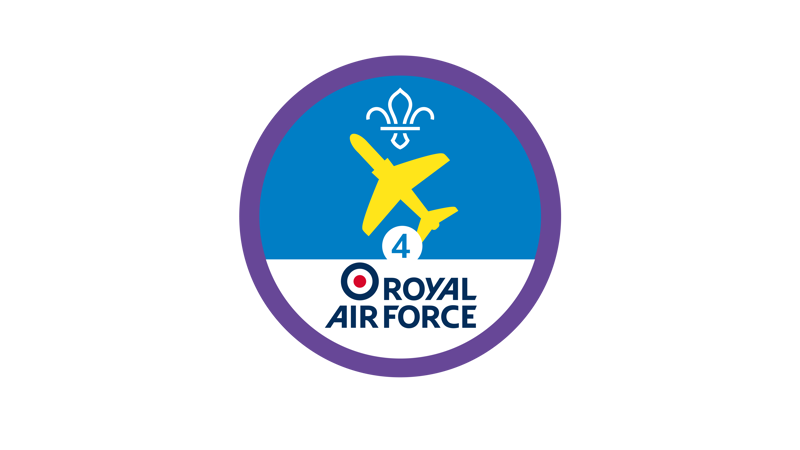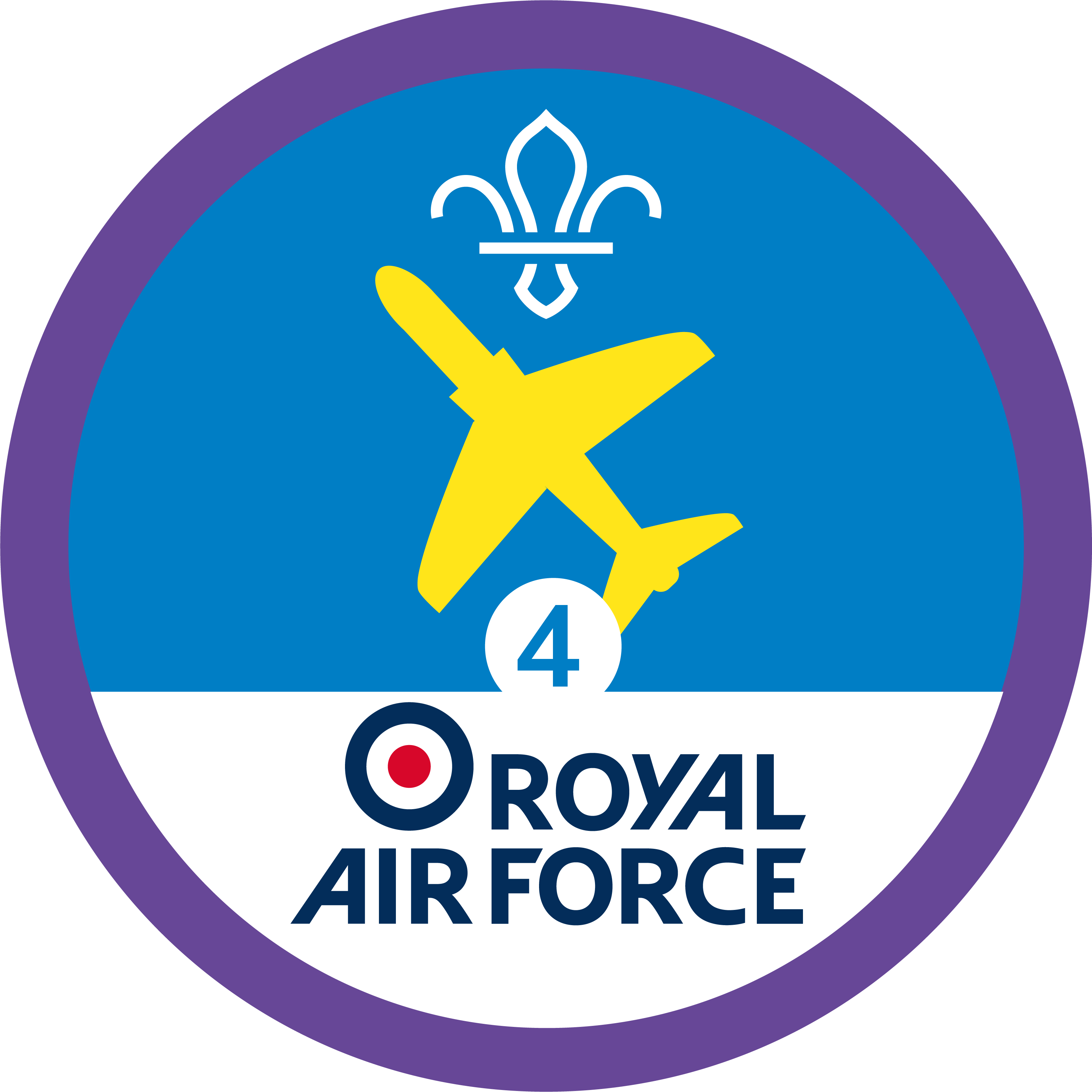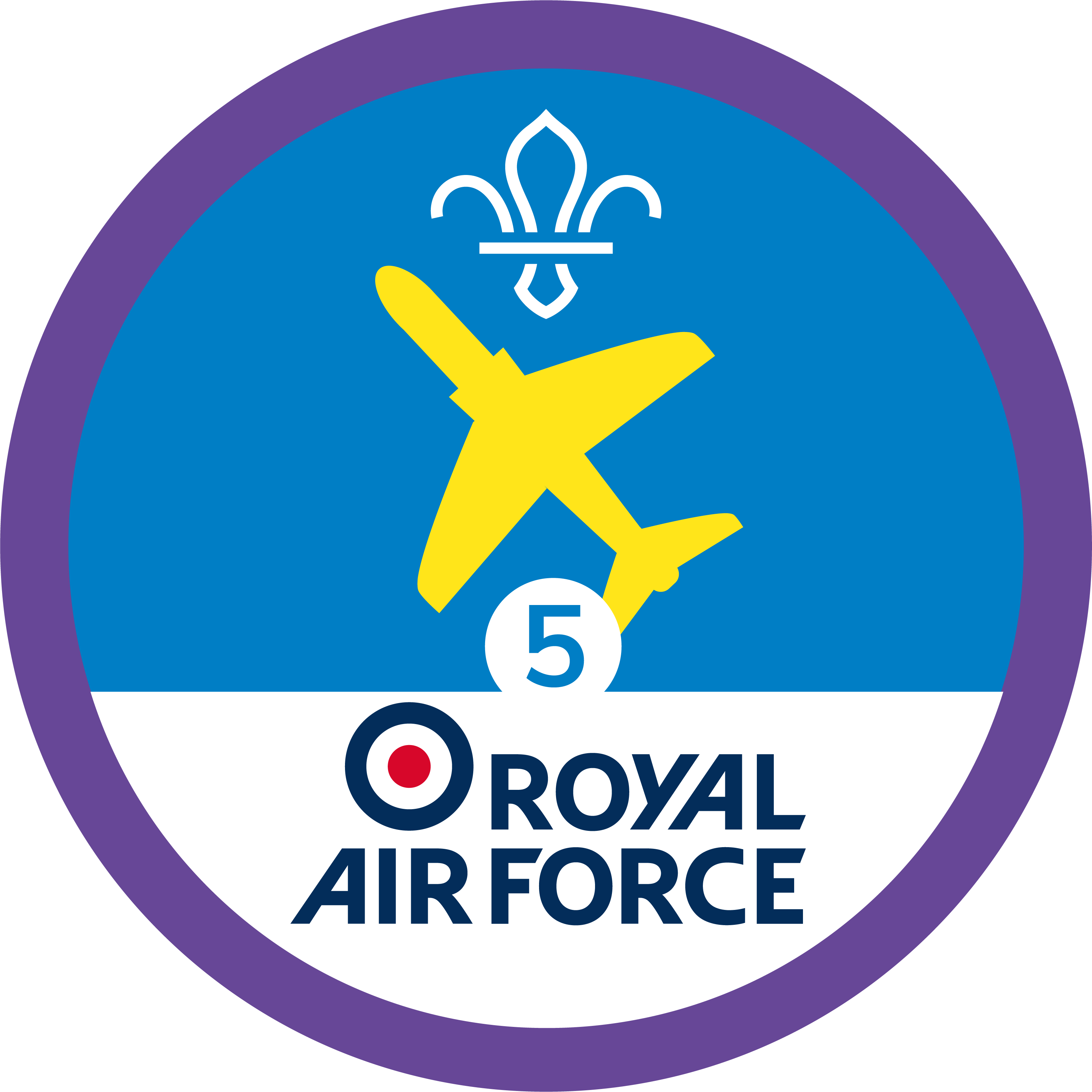
Flying fishbowl
You’ll need
- Pens or pencils
- Scrap paper
- Bowls
- Stopwatch or phone
- Access to the internet
- Device to show photos, videos, or slides
Before you begin
- The best way to learn pre-flight checks is to actually do them. See if you can visit a local airfield and speak to a pilot who can do a demonstration of some of their checks and safety precautions for the group.
- This activity is a great way for everyone to familiarise themselves with pre-flight checks before this trip. Anyone working towards their Air Activities Staged Activity Badge is required to demonstrate these pre-flight checks.
- As pre-flight checks vary depending on the aircraft, it could be helpful to have a pilot join you for this session and bring along a copy of their own specific checklist.
- If anyone is practising on an aircraft, you can head to a website like Free Checklists where it’s possible to find manufacturer and model guidelines. National governing bodies for different aircraft will also provide these. We’ve included a ‘Simple checklist’ of basics below to get you started, which contains checks that almost all aircraft need before take-off.
- Once you have your checklist, write out the individual checks onto some scrap paper and tear each one off, so that you have a stack of pre-flight checks.
- Put these in a bowl and shuffle them around. So if you’re looking at gliders, for example, you’d probably need nine scraps of paper, each with the following written on them: ‘Controls’, ‘Ballast’, ‘Straps’, ‘Instruments’, ‘Flaps’, ‘Trim’, ‘Canopy’, Brakes’ and ‘Eventualities’.
Explain the steps on your pre-flight checklist
This should include:
- What the controls look like
- Where they’re found
- What they do
- How to check them pre-flight
- Why it’s important to check them pre-flight
Cover this in as much detail as this guidance from the British Gliding Association. If you’re using the ‘Simple checklist’, here are some videos to explain these procedures: Hydraulic fluid level checks, Tyres and brake checks, General inspection (including propeller, landing gear and parking brake) and General inspection 2 (including fuel, flaps, lights and oil).
Run the activity
- Split everyone into two teams and bring forward the bowl of pre-flight checks.
Large groups may want to prepare two bowls of pre-flight checks and run two games simultaneously, so that everyone gets a go.
- Explain that you’ll be playing the fishbowl guessing game, where one member of each team should come forward, take a scrap of paper and provide clues as to what’s written on it, without saying the word(s) themselves. Teams have 60 seconds to guess as many checks as possible.
- The person leading the activity should keep score.
- In the first round, each team should nominate a player to fish a pre-flight check from the bowl. The player should describe how someone performs this pre-flight check. So for ‘Controls’, for example, one might say: ‘You move each one slowly and smoothly to the limit of its travel, while watching the movement of the related control surfaces.’
If the team guesses right, that scrap should be put to one side and that team can play again. If the team doesn’t guess right within 60 seconds, or passes, the scrap should be returned to the bowl.
- In the second round, each team should nominate a new player to fish a pre-flight check from the bowl. The player should describe why someone performs this pre-flight check. So for ‘Ballast’, for example, one might say: ‘It makes sure that the glider is flown within the recommended weight limit.’
- In the third round, each team should nominate another new player to fish a pre-flight check from the bowl. The player should describe what could happen if the pre-flight check isn’t completed. So for ‘Straps’, for example, one might say: ‘In a heavy landing, a soft cushion could result in the pilot sustaining crippling injuries.’
- In the fourth round, each team should nominate another new player to fish a pre-flight check from the bowl. The player should say one word to describe the pre-flight check that they’ve chosen. So for ‘Instruments’, for example, one might say: ‘Readings’ or ‘zero’.
- When the bowl is empty, replace the scraps of paper and continue from the team who’s turn it was, until everyone has had a couple of turns.
|
What to check |
Why check it? |
What happens if it’s not checked and something goes wrong? |
|
Hydraulic fluid level |
Hydraulic fluid is important because it moves the flaps |
The plane won’t steer |
|
Landing gear indicator light |
It shows if the wheels are working |
The wheels won’t come down from the body when landing |
|
Fuel gauges |
It shows how much fuel there is |
The plane will stop working when flying |
|
Exterior lights and landing light |
So other aeroplanes can see you |
Other planes might not see you when flying |
|
Parking brake |
It stops the plane rolling away when parked |
The plane might roll away |
|
Left and right flap & aileron |
It helps the plane steer when in flight |
The plane might be hard to control |
|
Main wheel tire/brakes |
Wheels are important when taking off or landing |
The plane might roll away |
|
Engine oil level |
Oil keeps the engine smooth |
The engine might catch on fire or stop |
|
Propeller |
It’s hard to fly without a working propeller |
The plane might not fly well |
Reflection
Pre-flight checks are extremely important. As the British Gliding Association says: ‘Only unbendable heroes in comic books leap straight into aeroplanes and take off!’ Sometimes, it’s very tempting to speed things along by skipping checks, like not checking your bicycle over before going for a ride. It’s obvious why the consequences of equipment failure for aircraft are so serious, but why do you think there are so many different checks to complete? Why do aircraft components come under extra strain?
In the game, clear communication was needed to describe each pre-flight check. Were there rounds people were dreading, or ones they found easier? Were any of the pre-flight checks particularly tricky to guess? Knowing and understanding why each check needs to be completed before every take-off keeps pilots and passengers safe, so they can’t afford to forget a single one!
Safety
All activities must be safely managed. You must complete a thorough risk assessment and take appropriate steps to reduce risk. Use the safety checklist to help you plan and risk assess your activity. Always get approval for the activity, and have suitable supervision and an InTouch process.
- Online safety
Supervise young people when they’re online and give them advice about staying safe. Take a look at our online safety or bullying guidance. The NSPCC offers more advice and guidance, too. If you want to know more about specific social networks and games, Childnet has information and safety tips for apps. You can also report anything that’s worried you online to the Child Exploitation and Online Protection Command. As always, if you’ve got concerns about a young person’s welfare, including their online experiences, follow the Yellow Card to make a report.
Charades or mime rounds could make the challenge of guessing the pre-flight check even harder, while more or less time per turn also affects the difficulty.
Provide pictures instead of words to represent each check, if this will make the processes easier to visualise. Videos are the simplest way of demonstrating each check and why it’s so important.
All Scout activities should be inclusive and accessible.
If any in your group are now hankering for a flying adventure, they might want to try gliding, hang-gliding, hot-air ballooning or paragliding.
Checklists used in this game should’ve been relevant to the aircraft the group is looking at and are interested in. Allow anyone with aviation knowledge or experience to help run this session.

